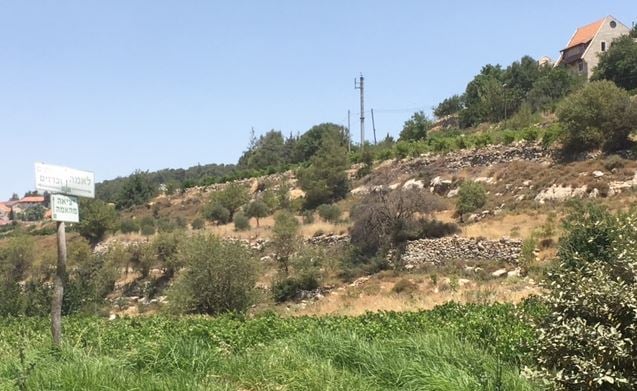Just below the town of Efrat is a 2,000-year-old aqueduct, known as the Biyar, which would bring natural spring water to collecting pools south of Bethlehem and then to Jerusalem.
Since ancient times, Efrat and the Etzion Bloc (Gush Etzion) area have been the gateway to Jerusalem from the south. We know that Abraham, Isaac and Jacob walked through this area in their journeys in the Land of Israel. In fact, many believe that right there, high on the mountain ridge, Abraham looked up and first saw Mount Moriah (Genesis 22:4).
It’s possible to walk today on this same road, named Derech Avot, the Path of the Patriarchs. In modern times, when fighting the War of Independence, the defenders of Gush Etzion were protecting the southern access to Jerusalem from this strategic location. Since the Second Temple period, water was brought from this area all the way to Jerusalem.
Just below the modern Israeli town of Efrat (named after the biblical Efrat) is a 2,000-year-old aqueduct called the Biyar, which would bring natural spring water to collecting pools (south of Bethlehem, known as Solomon’s Pools) and then on to Jerusalem. With a combination of brilliant technology and great determination, the Hasmoneans – and later King Herod and Pontius Pilate – were able to bring large amounts of fresh spring water from over 20 km away to provide Jerusalem with enough for fountains; drinking water for large numbers of Olei Regel (pilgrims), who would come to Jerusalem for all the festivals; ritual baths (mikva’ot), so they could be purified before going to the Holy Temple, and more. This water system was so successful that it was renovated and reused by different powers throughout the generations until 1967, when alternative water sources were used. This same system also provided water to the Herodian (one of Herod the Great’s Palaces and, ultimately, his burial place) to the east.
The water from the Biyar would go through what was known as the Upper Aqueduct to the Mamilla Pool (just outside the Old City) and eventually to Herod’s Palace and to the city itself. There was another aqueduct from Solomon’s Pools that made its way around, and even through, the mountains to the Temple Mount!
Remarkably, Solomon’s Pools were no more than approximately 20 meters higher than the Temple Mount, but ancient engineers knew that even this small height difference was enough to create enough pressure to enable the water to reach its destination.
There are several places where visitors can enjoy seeing remnants of this ancient water system. The Biyar Aqueduct, just under Efrat, is one of the best. Visitors walk and climb through this 150-meter-long tunnel underground.
If you visit, bring along water shoes, flashlights, and a change of clothes for this fun summer experience. At the end of the tunnel is a tall ladder to climb back up to ground level. You may choose to double back and enjoy the 10-15 minute walk through the tunnel the other way.
Upon exiting the Biyar, you will see that it’s surrounded by most of the “seven species” for which the Land of Israel is praised – “a land of wheat and barley and vines and figs, olive oil, and [date] honey” (Deuteronomy 8:8). In fact, the neighborhoods of Efrat (the houses that are visible above the Biyar) are named after the same seven species as well.
To visit the Biyar, call 02-9935356. A visit to the Biyar is a great way to end a wonderful day in the biblical-yet-modern Judean Hills.
By: Leah Bowman
(The author, a licensed tour guide, leads inspiring tours throughout Israel, including child-friendly and bible tours. Check out her website and blog page.)

Free Ebook: 10 Best Places to Visit in Israel
The Land of Israel has provided the backdrop for some of the most important events in human history. From the Old City in Jerusalem to the Sea of Galilee, people from all over the globe visit the Holy Land each year to take in the breathtaking scenery and inspiration of Israel. Now you can experience this beauty for yourself from the comforts of home and maybe plan a trip of your own to Israel. Get the free, exclusive eBook from United with Israel: The 10 Best Places to Visit in Israel.
